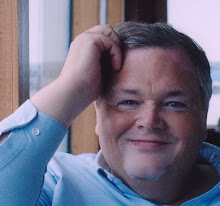Natural creativity is awesome, enjoyable, and often beneficial, which leads many to deliberately seek creativity with a variety of tools, techniques, and attitudes. But there are an infinity of things to be more creative about, and some are much more likely to give more useful success. Since creativity, no matter how enjoyable, is a limited resource, it makes sense to be choiceful about which things to target. The company focusing its innovation on building a highly efficient and accurate production line for buggy whips really needs to notice the emerging car industry making horse drawn buggies obsolete.
The creativity of constantly improving processes and performance to better fit the plan seems to take a different mindset and a different set of mental tools than trying to invent a whole new thing to plan for. Michael Kirton addressed this by assessing people's creative tendencies along a scale from adaptive to innovative. This is practically identical with Michael Porter's writing on strategy where he suggests that companies must choose whether to compete by being the lowest cost producer or the one which succeeds by differentiation, making their product different from others.
It is important to note that these endeavors often require different techniques for making thinking and conversations more creative. For example, the classic method of brainstorming is excellent for making long lists of short ideas, and has the additional benefit of building fluency and flexibility of thinking in individuals and groups. But often the thinking necessary for a particular type of opportunity is not an assemblage of small ideas, but thinking in large complex patterns. We need short lists of long ideas. More complex approaches such as analogies, visual brainstorming, and even extensive incubation are more likely to come up with ideas like E=MC squared.
As we attempt to become effective advocates, facilitators, and leaders of deliberate creativity and innovation, we need to become adept at a broad set of tools to most efficiently and effectively apply our creativity and knowledge to the right targets.
Or we can wait to get lucky...
Sunday, June 24, 2012
Subscribe to:
Comments (Atom)



